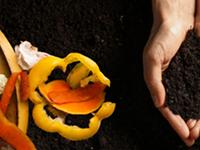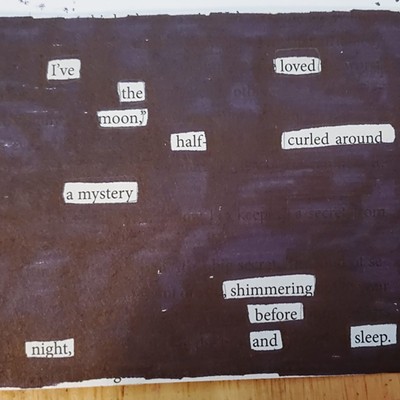[
{
"name": "500x250 Ad",
"insertPoint": "5",
"component": "15667920",
"parentWrapperClass": "",
"requiredCountToDisplay": "1"
}
]
Most people probably see organic waste like food scraps as a burden to be disposed of as quickly as possible.
But Cam Hebda, a sustainable systems graduate student at Rochester Institute of Technology, says he wants people to look at the materials in a different way. By throwing away organic waste and burying it in landfills, communities are missing out, he says, on the opportunity to turn the discards into higher-value products like compost or biofuels.
The organic materials aren't really waste at all, Hebda says.
Hebda has started a research project aimed at getting decision-makers and communities to think about higher-value uses of organic wastes.
He says he wants to use his research, which is funded by the state Department of Environmental Conservation via the New York State Pollution Prevention Institute, to develop a policy brief for City of Rochester officials, decision-makers, and local waste industry officials.
"Hopefully, if something looks good, it'll lead to business development that's local," Hebda says.
And he says he plans to look at the social and economic factors that influence choices at the personal and governmental levels regarding organic waste management.
Hebda has begun surveying city residents about organic wastes. He says he wants to know how different households manage the materials, what their perceptions are about the various alternatives, and the value they place on the products that can be made out of them. (City residents interested in taking the survey can contact Hebda at [email protected].)
Hebda is analyzing the benefits and costs associated with different organic waste recycling options, including methane production through anaerobic digestion, ethanol production through fermentation, and commercial composting.
He says he'll also examine the costs and benefits of directing the wastes to a landfill with a gas capture system. Many landfill operators harness the gas generated through waste decomposition and use it to generate electricity; Waste Management has landfill gas-to-energy operations at Mill Seat Landfill in Riga and High Acres Landfill in Perinton and Macedon.
Hebda also plans to study the greenhouse gas emissions of the organic waste management options he evaluates.
Cam Hebda, a graduate student at RIT, says that by throwing away organic waste and burying it in landfills, communities are missing out on the opportunity to turn the discards into higher-value products like compost or biofuels. The organic materials aren't really waste at all, he says.









